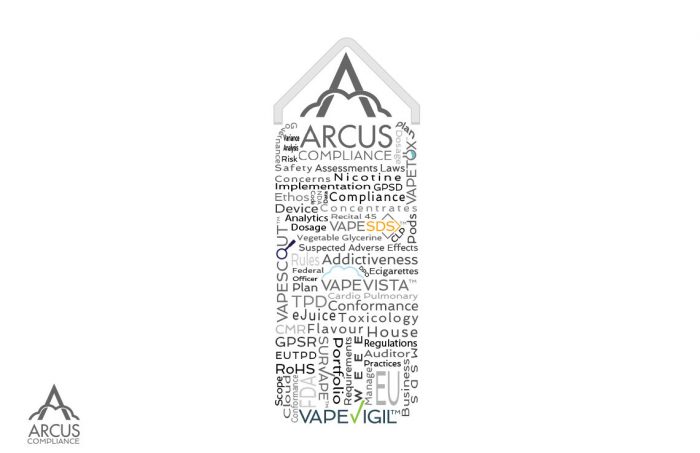Just realising that EU compliance is more than TPD?
Those brands who manufacture devices have been aware of RoHS and WEEE, but had little knowledge of 768/2008/EU which is the Framework for the marketing of products legislation which governs everything from your labelling to how you appoint your distributors!
Then throw GDPR into the mix and everyone begins to lose their minds.The fact is we are now in a regulated industry and those “regulatory obligations” are only set to become more complex as we progress and the regulators begin to understand the potential risks. So it makes sense that you (as brand owners) understand the likely impact on your business and the plans that you have for the future.With the regulators becoming more vigilant it has never been more important for brand owners to have a robust due diligence process for all aspects of their product stewardship. It is no longer acceptable to send your products for testing at a flavour house, just because they are the cheapest option!
You need to be able to demonstrate why that choice is acceptable. Ownership of your decisions and a demonstration of why you made those decisions are now essential.It is generally accepted in the industry that the TPD roll-out was essentially a paper shuffling exercise and the real scrutiny will begin in the next phases. With likely changes to how emission tests are conducted with a benchmark methodology and possibly even approved testing houses among those changes (This is on the table at the EU as we write this article).
Should these changes come in, then many of those brands that chose the budget route on testing could face retrospective costs to existing notifications, because their testing data simply isn’t up to par.Whilst these are our suggestions, they may well be realistic given feedback gathered from a recent meeting with MHRA department heads.
Whether you are marketing nicotine containing e-liquids or zero-Nic short fills, the fact remains that there are rules you need to work within and enforcement is happening to support the legislation. Whilst most of the penalties will be met by the European importers of the products, the brand owner will face the ultimate penalty of having their brands withdrawn from the markets.Burying your head in the sand simply isn’t an option. Compliance doesn’t need to be expensive, but it is a cost that you must factor if you want to be a brand that is around in years to come!
If you would like to discuss how to build a robust due diligence process to support your product lines, get in touch today.
Posted on April 14, 2018 by Lee Bryan

